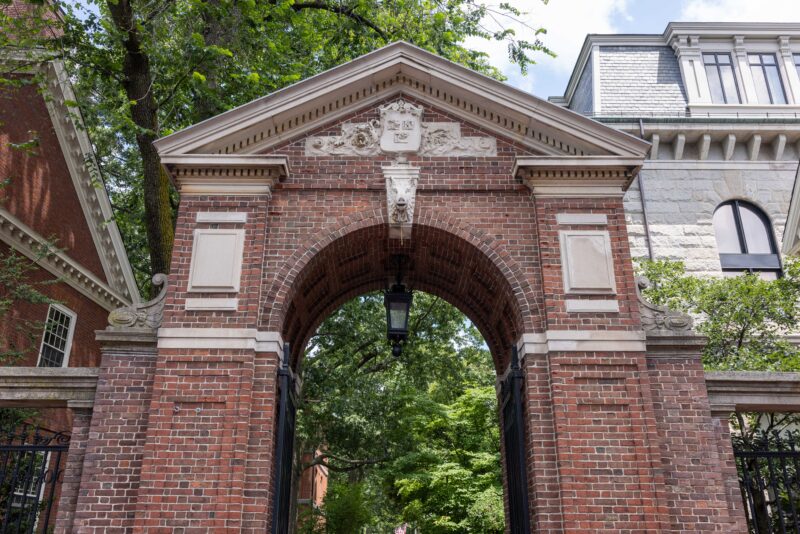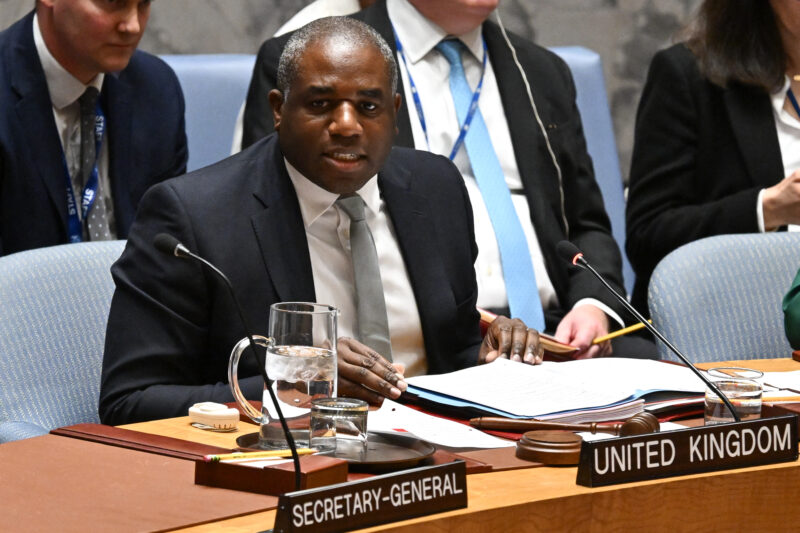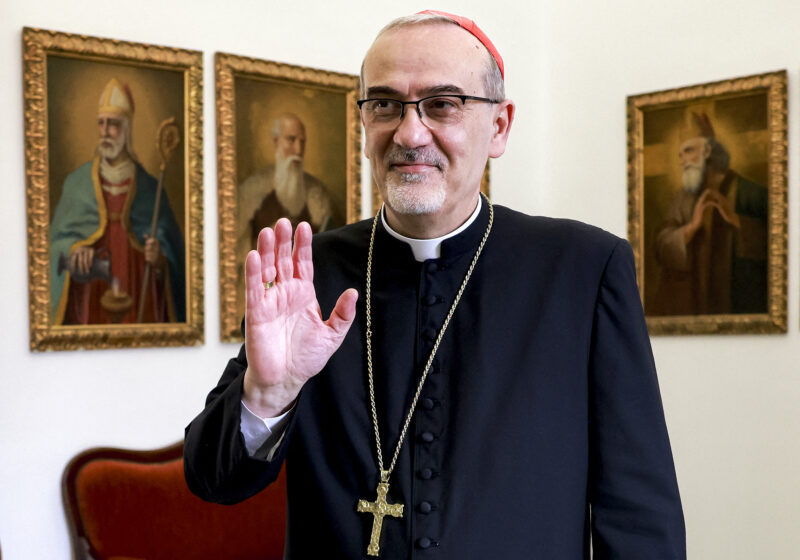EU to consider downgrading relations with Israel, calling for more humanitarian aid to enter Gaza ‘without obstruction,’ with support from most member states

ANGELA WEISS/AFP via Getty Images
United Kingdom Foreign Secretary David Lammy speaks as the United Nations Security Council meets to discuss the situation in the Middle East on November 18, 2024, at UN headquarters in New York City.
U.K. Foreign Secretary David Lammy announced that Britain has suspended negotiations with Israel on a new free trade agreement and will be “reviewing cooperation,” a day after the U.K., France and Canada threatened to take “concrete actions” and impose sanctions on Israel over its policies on humanitarian aid in Gaza and settlement activity in the West Bank.
Lammy, speaking to British lawmakers in the House of Commons on Tuesday, said the “Netanyahu government’s actions have made this necessary,” describing the lack of humanitarian aid entering Gaza as “intolerable” and “abominable.”
He said that Tzipi Hotovely, the Israeli ambassador to the U.K., has been summoned to the U.K. Foreign Office, where Middle East Minister Hamish Falconer will tell her that “the 11-week block on aid to Gaza has been cruel and indefensible” and that “dismissing concerns of friends and partners … must stop.”
Lammy also announced that the British government will impose sanctions on three individuals and four entities with ties to settlements in the West Bank, which the U.K., France and Canada called “illegal” in their joint statement.
Addressing the Israeli public, Lammy said that its government’s “egregious actions and rhetoric” are “isolating Israel from its friends and partners around the world, undermining the interests of the Israeli people and damaging the image of the state of Israel in the eyes of the world.”
Israel announced this week that it would allow some humanitarian aid into the Gaza Strip after an 11-week blockade intended to exert pressure on Hamas to release the remaining 58 hostages, and is working with the U.S. on a distribution mechanism that does not rely on the U.N. and will impede Hamas’ ability to intercept aid deliveries. The U.K. and other European countries have rejected these efforts and insist on the involvement of U.N. agencies.
Israeli Ministry of Foreign Affairs spokesperson Oren Marmorstein responded to Lammy’s speech on X, saying that, “Even prior to today’s announcement, the free trade agreement negotiations were not being advanced at all by the current UK government,” and that if the British government is “willing to harm the British economy” over “anti-Israel obsession and domestic political considerations … that is its own prerogative.”
The U.K. and Israel traded roughly $7.7 billion worth of goods and services in 2024, according to a U.K. Department for Business and Trade fact sheet.
Before Lammy’s speech, Israeli Foreign Minister Gideon Sa’ar responded to the joint statement from the three countries at the World Jewish Congress General Assembly in Jerusalem, where he said, “I want to tell to every country, mainly those who had colonial pasts — this [Israel] is a proud nation, an independent nation, fighting on its existence. We will not get any dictates from outside with regard to our national security.” Marmorstein noted in his post that the British Mandate for Palestine ended exactly 77 years ago this month.
Lammy has been critical of Israel’s handling of the humanitarian situation in Gaza throughout the war. He came under fire in December from Mandy Damari, the mother of the only British citizen who was then being held hostage in Gaza, Emily Damari, after he posted on social media condemning the “unacceptable humanitarian situation in Gaza” without noting the ongoing hostage situation, just hours after attending an event where Mandy gave a speech about her daughter’s captivity.
In Lammy’s post about Gazans needing more aid, Mandy said, “there was no mention of the need to get any of that aid to Emily or the other hostages.”
Later Tuesday, the EU’s foreign policy chief Kaja Kallas said that Brussels will review whether Israel is violating the human rights clause of the EU-Israel Association Agreement, which governs the high-level political and economic ties between the sides. Dutch Foreign Minister Caspar Veldkamp proposed the review with the backing of 17 of 27 EU members; however, a policy change would require unanimity within the bloc.
“The situation in Gaza is catastrophic,” Kaja told reporters outside an EU foreign ministers’ meeting in Brussels. “The aid that Israel has allowed in is, of course, welcomed, but it’s a drop in the ocean. Aid must flow immediately, without obstruction and at scale, because this is what is needed.”
The foreign ministers also voted on sanctioning “violent settlers,” but one country blocked them, Kaja said. That country was Hungary, Reuters reported, citing anonymous diplomats.
Israel’s Foreign Ministry said that it “completely reject[s] the direction taken in [Kallas’] statement, which reflects a total misunderstanding of the complex realities Israel is facing.”
Ignoring that Hamas has refused to release the hostages and has rejected American ceasefire proposals “only hardens Hamas’s position … Hamas’s recent praise for such criticism is a clear indication of this and results in prolonging the war,” the statement reads.
The Foreign Ministry thanked the countries that supported Israel and called on the EU “to exert pressure where it belongs — on Hamas.”
The EU vote came a day after 23 countries, including most of the EU, plus Australia, Canada, the U.K., New Zealand, Norway and Japan, called on Israel to “allow a full resumption of aid into Gaza immediately” and enable U.N. agencies to distribute it. The EU countries that did not sign the letter were Austria, Czech Republic, Hungary, Poland, Belgium, Bulgaria, Croatia, Cyprus, Greece, Malta, Romania and Slovakia.
Countries call on Israel to cancel Gaza escalation and let in more humanitarian aid or face 'concrete actions'

Antoine Gyori - Corbis/Corbis via Getty Images
British Prime Minister Keir Starmer is greeted by French President Emmanuel Macron ahead of the 'Coalition Of The Willing' summit in support of Ukraine at Elysee Palace on March 27, 2025 in Paris, France.
The United Kingdom, France and Canada threatened on Monday to take “concrete actions” and impose sanctions against Israel if it does not change its policies on humanitarian aid and the war in Gaza, as well as settlements in the West Bank.
The statement from the three countries came in response to Israel’s announcement that it had begun an escalation in the fighting in Gaza, while allowing in a limited amount of food, 11 weeks after blocking all aid in an attempt to pressure Hamas to free more hostages.
The countries said they “strongly oppose the expansion of Israel’s military operations in Gaza. The level of human suffering is intolerable. Israel’s denial of essential humanitarian assistance to the civilian population is unacceptable and risks breaching International Humanitarian Law.”
In addition, they said that the “basic quantity of food” to be allowed into Gaza “is wholly inadequate,” and that Israel must work with United Nations agencies. Israel and the U.S. have been working on an alternative mechanism to distribute aid rather than rely on U.N. agencies, which have not prevented Hamas from pocketing large quantities of aid and in some cases employed Hamas terrorists.
“If Israel does not cease the renewed military offensive and lift its restrictions on humanitarian aid, we will take further concrete actions in response,” the statement reads.
French Foreign Minister Jean-Noël Barrot said in an interview with French radio station France Inter on Tuesday that “further concrete actions” could include supporting a push led by the Netherlands to cancel the EU-Israel Association Agreement, which would in effect downgrade relations between Jerusalem and Brussels. Canada and the U.K. would not be involved, as they are not EU member states.
France, the U.K. and Canada also spoke out against Israeli settlements in the West Bank, calling them illegal and saying they “will not hesitate to take further action, including sanctions.”
In addition, they called to work towards a two-state solution, arguing that it is “the only way to bring long-lasting peace and security that both Israelis and Palestinians deserve.”
The three countries said they “have always supported Israel’s right to defend Israelis against terrorism” and called on Hamas to release the 58 hostages held since Oct. 7, 2023, at least 20 of whom are thought to be alive.
A second statement from 23 countries, including most of the EU, plus Australia, Canada, the U.K., New Zealand, Norway and Japan, also called on Israel to “allow a full resumption of aid into Gaza immediately” and enable U.N. agencies to distribute it, and called for a two-state solution. The EU countries that did not sign the letter were Austria, Czech Republic, Hungary, Poland, Belgium, Bulgaria, Croatia, Cyprus, Greece, Malta, Romania and Slovakia.
Israeli Prime Minister Benjamin Netanyahu responded that “the leaders in London, Ottawa and Paris are offering a huge prize for the genocidal attack on Israel on October 7 while inviting more such atrocities.”
“Israel accepts President [Donald] Trump’s vision and urges all European leaders to do the same,” he added. ”The war can end tomorrow if the remaining hostages are released, Hamas lays down its arms, its murderous leaders are exiled and Gaza is demilitarized. No nation can be expected to accept anything less and Israel certainly won’t. This is a war of civilization over barbarism. Israel will continue to defend itself by just means until total victory is achieved.”
Israeli Foreign Minister Gideon Saar shared on X a screenshot of a press release in which Hamas welcomed the countries’ threat, and added: “What a disgrace.”
French President Emmanuel Macron has been increasingly critical of Israel in recent weeks, calling Israel’s Gaza policies “shameful” and saying the EU should consider revoking its free trade agreement with Israel, to which Israeli Prime Minister Benjamin Netanyahu responded that Macron is standing with Hamas. France is also spearheading, together with Saudi Arabia, a high-level meeting at the U.N. next month calling for a two-state solution.
Marine Le Pen, president of the far-fight French party National Rally, told i24 News on Monday that she is “very concerned about the distance that Emmanuel Macron is creating with Israel, if I may put it this way, precisely at the worst possible time. At a time when Israel is fighting a war against terrorism, when it needs the support of its friends, and France has traditionally been a friendly country toward Israel.”














































































